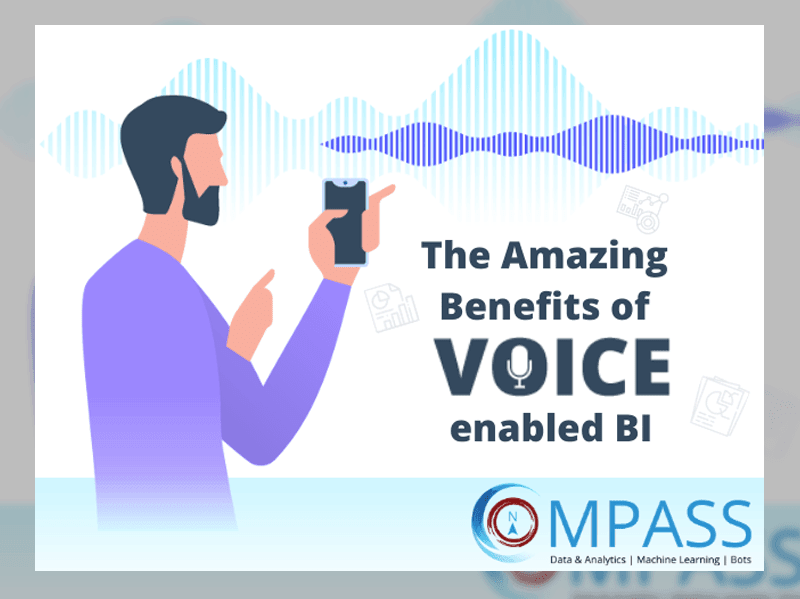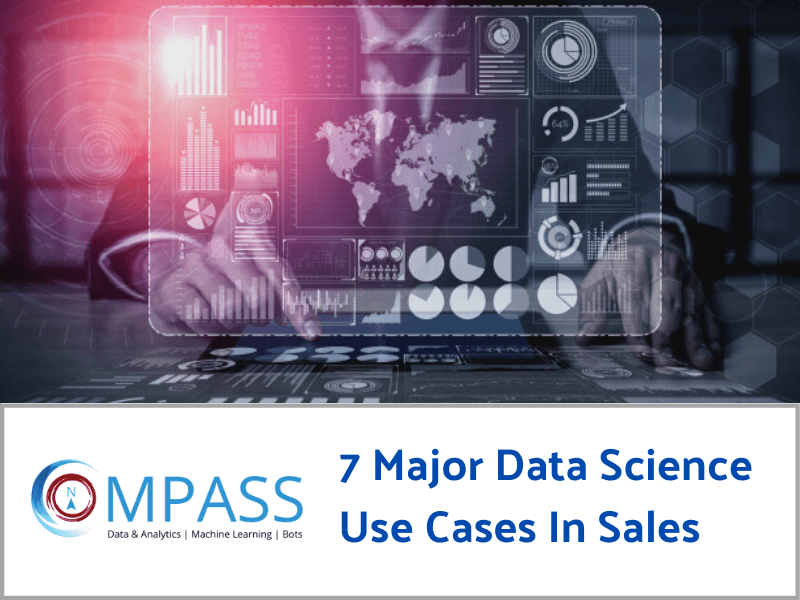With the advancements in natural language processing (NLP), Big Data, artificial intelligence (AI) and automation, businesses are replacing their traditional Business Intelligence (BI) systems with modern automated BI systems over the last few years.
However, a low user adoption rate still poses a problem for business organizations while implementing a modern BI solution. It is one of the top reasons why most BI projects fail or fail to deliver value have a major detrimental impact on return-on-investment. According to Gartner, BI and analytics adoption among employees is just 30%.
Organizations and BI solution vendors are now able to address this major roadblock by integrating text or voice-enabled virtual assistants (Alexa, Cortana, Siri, Google Assistant, etc.) with BI systems. Since bad user experience (UX) of BI systems is one of the major reasons behind the low adoption rate, an easy-to-use conversational interface is emerging as a key solution to improve UX.
While text-based chatbots are already being used by several enterprises for various use cases, voice bots are fast-gaining traction as well. Gartner predicts that, by 2023, 25 percent of employee interactions with applications will be via voice, up from under 3 percent in 2019.
The increased popularity of personal smart speakers like Amazon Echo, Apple HomePod and Google Home are pressurizing businesses to adopt similar technologies in the workplace as well.
This AI and NLP powered technology allows users to ‘talk’ to their BI system and ‘hear’ the needed insights. You can ask a natural language question like “What was my annual revenue in 2017?” to a BI virtual assistant and it responds with the specific data point – “It’s $220 Million”.
Voice-based virtual assistants are driving a culture of data by simplifying data consumption, enabling ease of data access, and increasing speed in decision-making. Let’s deep dive and explore the four remarkable benefits of voice-enabled BI.
Ease Of Access To Insights
Voice-enabled BI makes it easier to access insights, dashboards and reports and enables speedy decision-making.
A BI virtual assistant eliminates the need to log into the BI app, filter dashboards, and search for information. It acts as a single point of contact for accessing the required reports and information.
Imagine you’re in a meeting and are presenting a sales PPT to your customers. And one of your customers asks for a revenue KPI which you’ve missed in your presentation. In a traditional setting, you have to navigate through your BI software, filter the required dashboards and fetch the data. But by then, the topic of discussion would’ve already been changed and you have lost the opportunity to make an impression.
However, with a virtual assistant, you can get the required insight just by asking a quick question. If you need a detailed report, the assistant can email you the link to the right dashboard.
Voice-enabled BI makes life easier for both business users and people who crunch data on a regular basis. The convenient workflow of getting needed information within seconds allows faster decision-making.
Thereby, employees feel motivated to use BI data more often and say sayonara to decisions based on guesses or partial-intelligence.
Multi-Device Support
Virtual assistants are available across multiple devices. You can access them on your desktop and laptop devices at work and on mobile devices while you’re traveling or at home. This is especially useful for field workers who need data at their fingertips.
Personalized Engagement
Voice bots act as your personal digital assistants. While we have discussed their on-demand search capabilities in great depth, voice-enabled BI also personalizes user engagement with push notifications.
It proactively notifies users by directly sending personalized notifications, updates, important alerts, and shifts in trends. So, it not only brings data to you when demanded, but it also relays important information and schedules vital alerts based on the previous interactions.
Wrapping Up
Any BI technology is only as good as it’s adoption and usage. Voice-enabled BI, with the help of machine learning and NLP simplifies data interaction for users and thereby boosts adoption. It motivates decision-makers to use data more often in their day to day tasks and enables a culture of data throughout the organization. Adopting conversational BI technologies is becoming imperative in an era where data-driven decision making has a direct impact on organizational revenue.
If you would like to know more about voice-powered BI bots and how they can be integrated into your existing business intelligence system, please get in touch with one of our BI and chatbot consultants for a personalized consultation.



